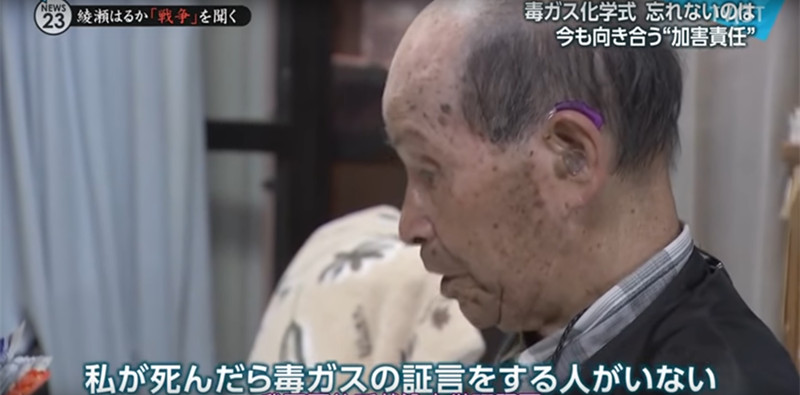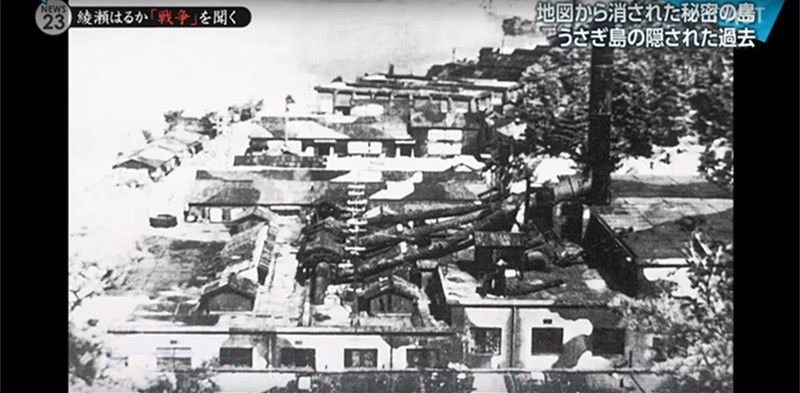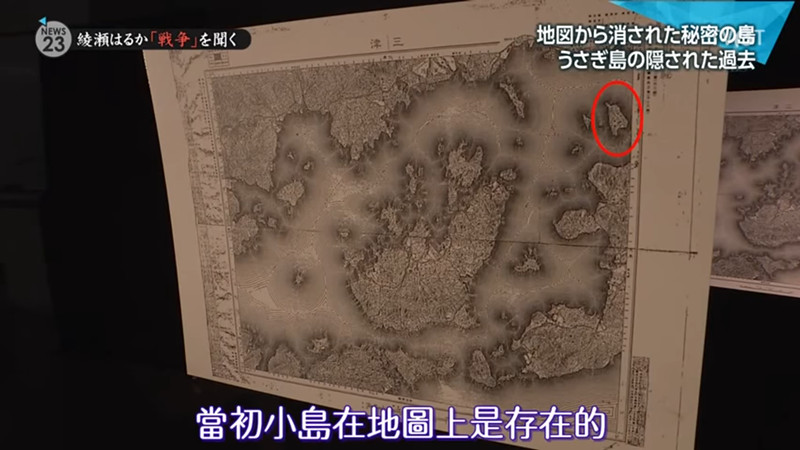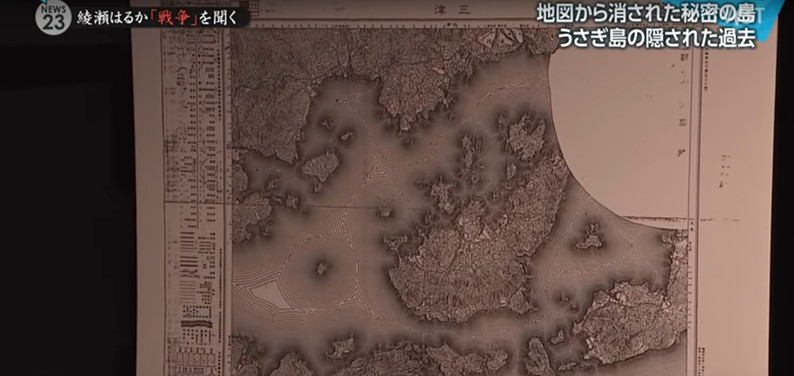

A documentary released by Tokyo Broadcasting System Television (TBSHD) on Victory over Japan Day on Tuesday stunned Japanese viewers after a secret poison gas factory in Ōkunoshima Island that killed about 80,000 Chinese soldiers and civilians during World War II was disclosed.
A 91-year-old Japanese solider named Yasuma Fujimoto narrated his experience as a Japanese Imperial Army soldier who had manufactured thousands of tons of poison gas on the island. “We produce the poison gases for Japanese aggression in China,” he said. “We are the war criminals. The fact that we have killed so many Chinese should not be erased, let alone celebrated as heroism.”

(The screenshot of the documentary shows Yasuma Fujimoto)
Ōkunoshima is a small island in the Seto Inland Sea that is famous for Rabbit Island, which is home to hundreds of wild rabbits. Fujimoto said the island appeared yellow instead of green in the past as the acid in the poison gas would kill plants. Rabbits were brought to the island in 1929 and used to test the effectiveness of the poison gas, according to The Guardian.

(The old photo of the poison gas factory)
Over 3,700 Japanese died during the manufacturing process. The poison, which included mustard gas and phosgene, caused Fujimoto to develop chronic bronchitis and stomach cancer, and he must take lots of medication every day to stay alive. "I will not pass away till I pass on all the facts covered up by the Japanese government," he said.
According to Fujimoto, Japan has tried hard to scrub the terrible history as the international community has banned poison gas. The government used to exclude the island from maps and required buses to pull down the curtains when passing the island. Island citizens were also required to sign confidentiality agreements.

(Ōkunoshima exists in the original map)

(Ōkunoshima disappears in the map after 1938)
Li Qingxiang, a Chinese victim who is now 88, was interviewed about Japan's atrocities. He disclosed details about a Japanese gas attack on an underpass in Beituan Village, Hebei province, which also harmed women and children inside. Li lost his little sister in the attack 70 years ago.
Famous actress Haruka Ayase presented the documentary. Many of her fans were angry about her involvement in a television program that said bad things about Japan, but Ayase wrote on social media that Fujimoto reminded her of the horrors of war and how precious peace is. “I hope more people can hear Fujimoto’s story,” she said.
 Fire brigade in Shanghai holds group wedding
Fire brigade in Shanghai holds group wedding Tourists enjoy ice sculptures in Datan Town, north China
Tourists enjoy ice sculptures in Datan Town, north China Sunset scenery of Dayan Pagoda in Xi'an
Sunset scenery of Dayan Pagoda in Xi'an Tourists have fun at scenic spot in Nanlong Town, NW China
Tourists have fun at scenic spot in Nanlong Town, NW China Harbin attracts tourists by making best use of ice in winter
Harbin attracts tourists by making best use of ice in winter In pics: FIS Alpine Ski Women's World Cup Slalom
In pics: FIS Alpine Ski Women's World Cup Slalom Black-necked cranes rest at reservoir in Lhunzhub County, Lhasa
Black-necked cranes rest at reservoir in Lhunzhub County, Lhasa China's FAST telescope will be available to foreign scientists in April
China's FAST telescope will be available to foreign scientists in April "She power" plays indispensable role in poverty alleviation
"She power" plays indispensable role in poverty alleviation Top 10 world news events of People's Daily in 2020
Top 10 world news events of People's Daily in 2020 Top 10 China news events of People's Daily in 2020
Top 10 China news events of People's Daily in 2020 Top 10 media buzzwords of 2020
Top 10 media buzzwords of 2020 Year-ender:10 major tourism stories of 2020
Year-ender:10 major tourism stories of 2020 No interference in Venezuelan issues
No interference in Venezuelan issues
 Biz prepares for trade spat
Biz prepares for trade spat
 Broadcasting Continent
Broadcasting Continent Australia wins Chinese CEOs as US loses
Australia wins Chinese CEOs as US loses